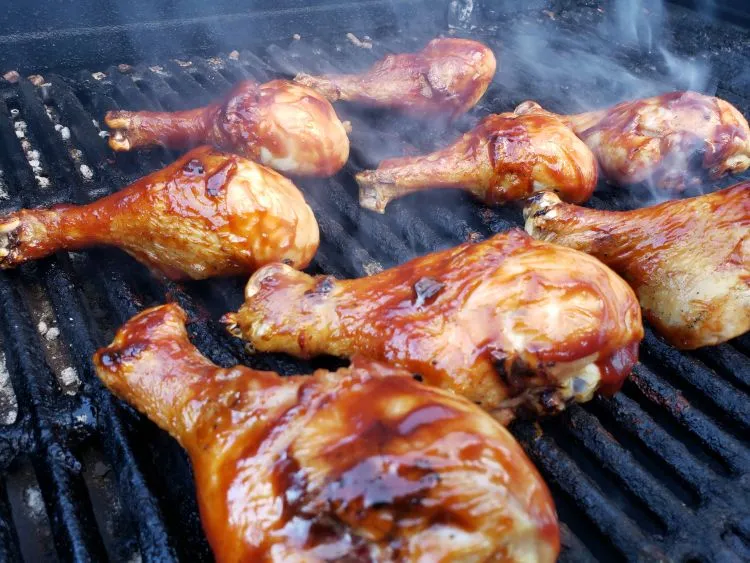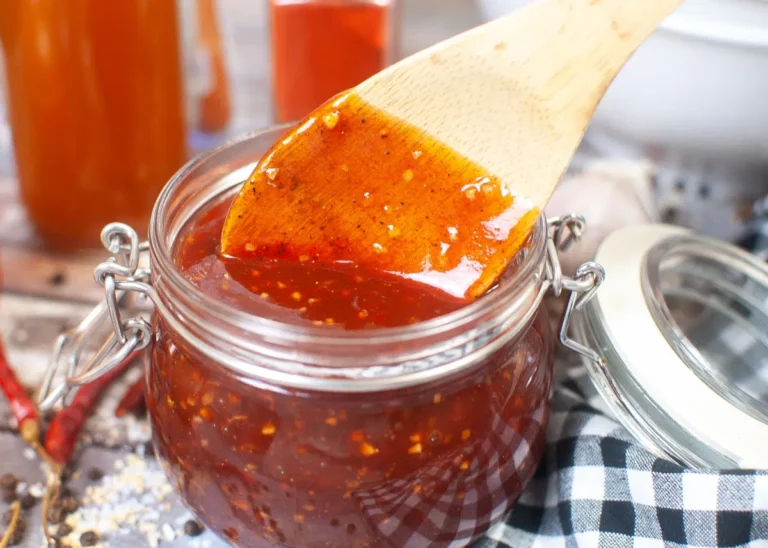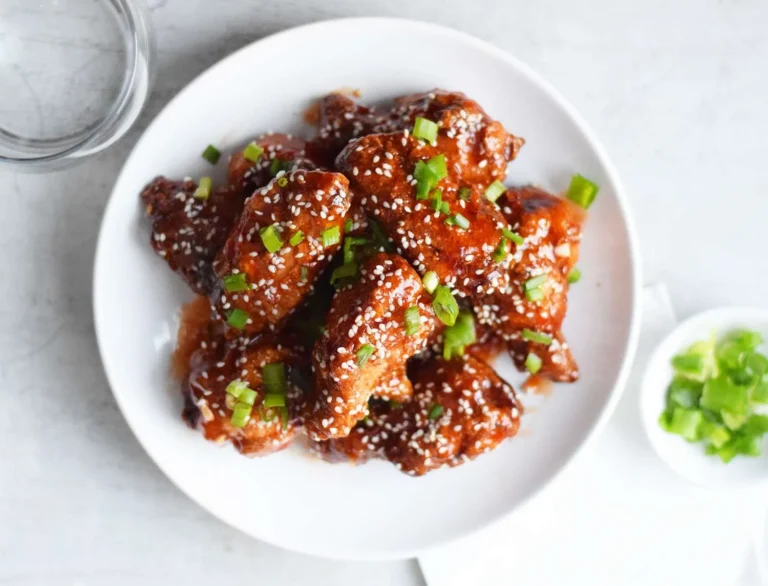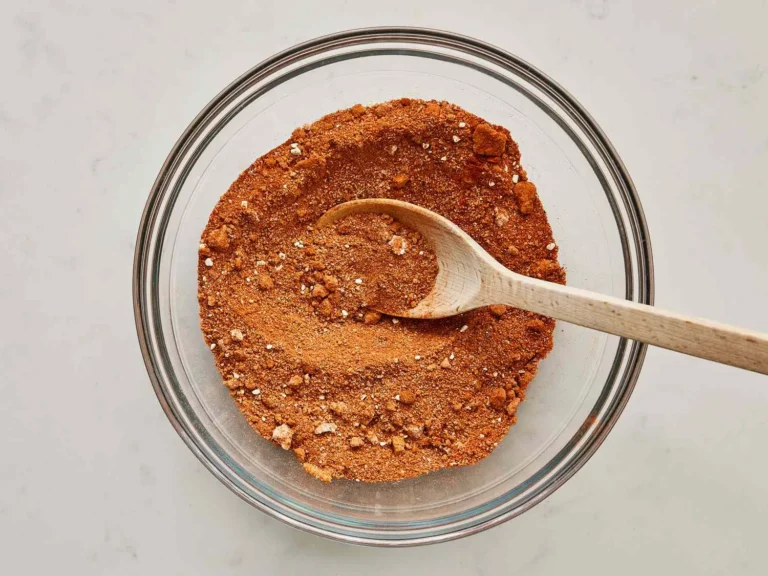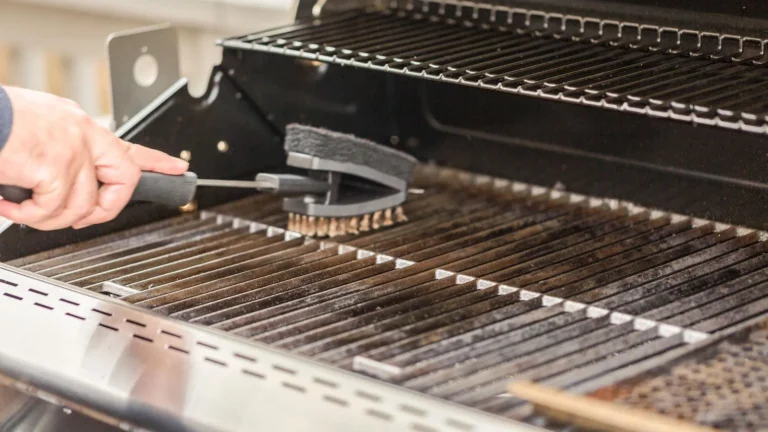Can You Use Silicone Tongs on Grill?
When it comes to BBQ or grilling, using the right tools is key to ensuring safety and cooking success. Silicone tongs are popular in many kitchens thanks to their non-stick properties, heat resistance, and gentle grip on food. But can you use silicone tongs on grill? Let’s explore the capabilities and limitations of silicone tongs when used on a grill.
Capabilities:
- Heat Resistance: Most silicone tongs can handle temperatures up to 500°F (260°C), making them safe for grilling without melting or breaking down.
- Non-Stick Surface: Silicone’s non-stick nature ensures that food won’t cling to the tongs, making flipping and handling food easier.
- Gentle Grip: The soft silicone tips are perfect for handling delicate foods like fish and vegetables, reducing the risk of tearing or damaging them.
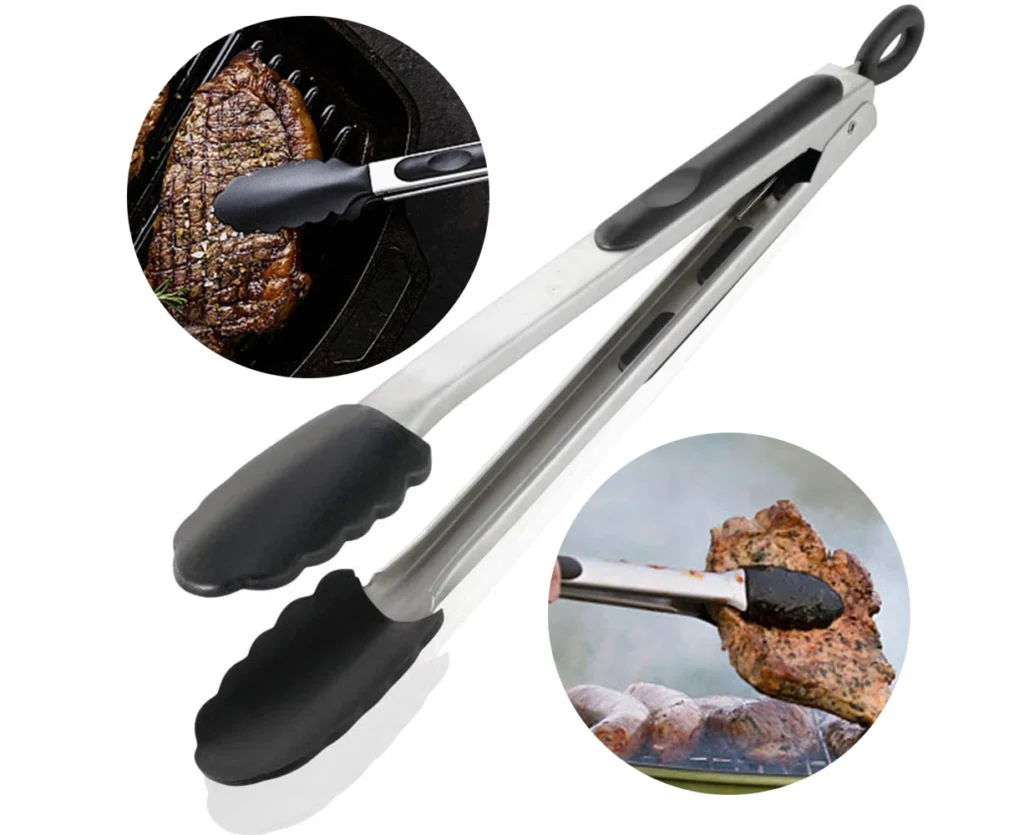
Limitations:
- Direct Flame Exposure: While silicone tongs are heat-resistant, they’re not meant for direct contact with open flames. Prolonged exposure to flames can cause the silicone to degrade.
- Durability: Silicone is softer than metal, which can make it less suitable for heavy-duty grilling tasks, like handling large cuts of meat.
- Grip Strength: Silicone tongs may not offer the same firm grip as metal tongs, particularly when dealing with heavier foods.
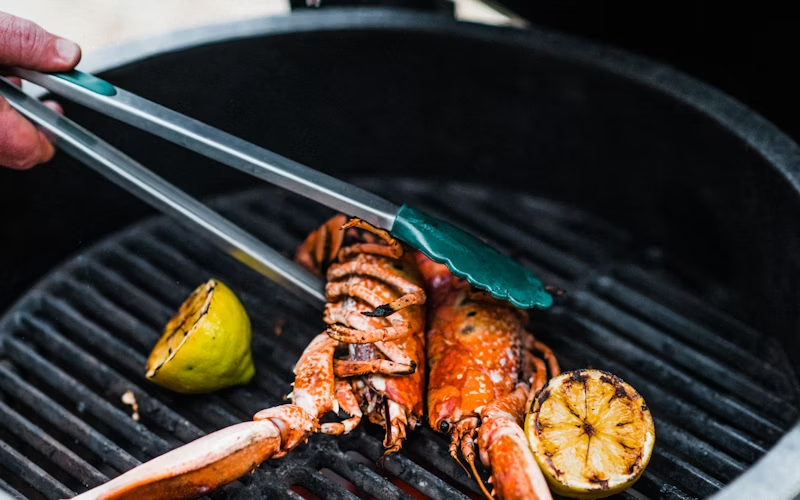
Overall, silicone tongs can be a valuable addition to your grilling toolkit, especially for tasks requiring a gentle touch and non-stick properties. However, understanding their limitations and using them appropriately will help you get the best results.
Understanding Silicone as a Material
Silicone is a versatile and durable material that has become popular in various kitchen tools, including tongs. Its unique properties make it particularly suitable for high-heat environments, such as grilling. Here’s why:
- Heat Resistance: Silicone withstands temperatures up to 500°F (260°C), making it ideal for high-heat grilling without melting or deforming.
- Flexibility and Durability: It’s flexible and durable, providing a gentle grip on food without cracking or breaking.
- Non-Reactive Nature: Silicone doesn’t react with food or other substances, ensuring safety by not leaching harmful chemicals, even at high heat.
- Non-Stick Properties: Its naturally non-stick surface prevents food from sticking, making handling and cleaning easier.
- Resilience to Temperature Fluctuations: Silicone endures rapid temperature changes without degrading, maintaining its performance across a wide range of temperatures.
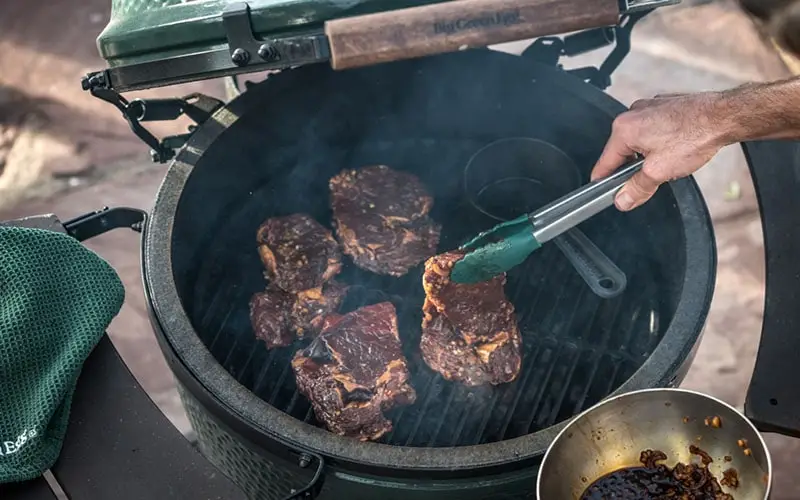
These properties make silicone a reliable material for grilling tools. However, knowing how to use silicone tongs correctly is key to maximizing their benefits and longevity.
Comparison with Other Materials
When selecting tongs for grilling, it’s important to compare how different materials handle heat and ensure safety. Here’s a comparison of silicone tongs with metal and plastic tongs:
Metal Tongs
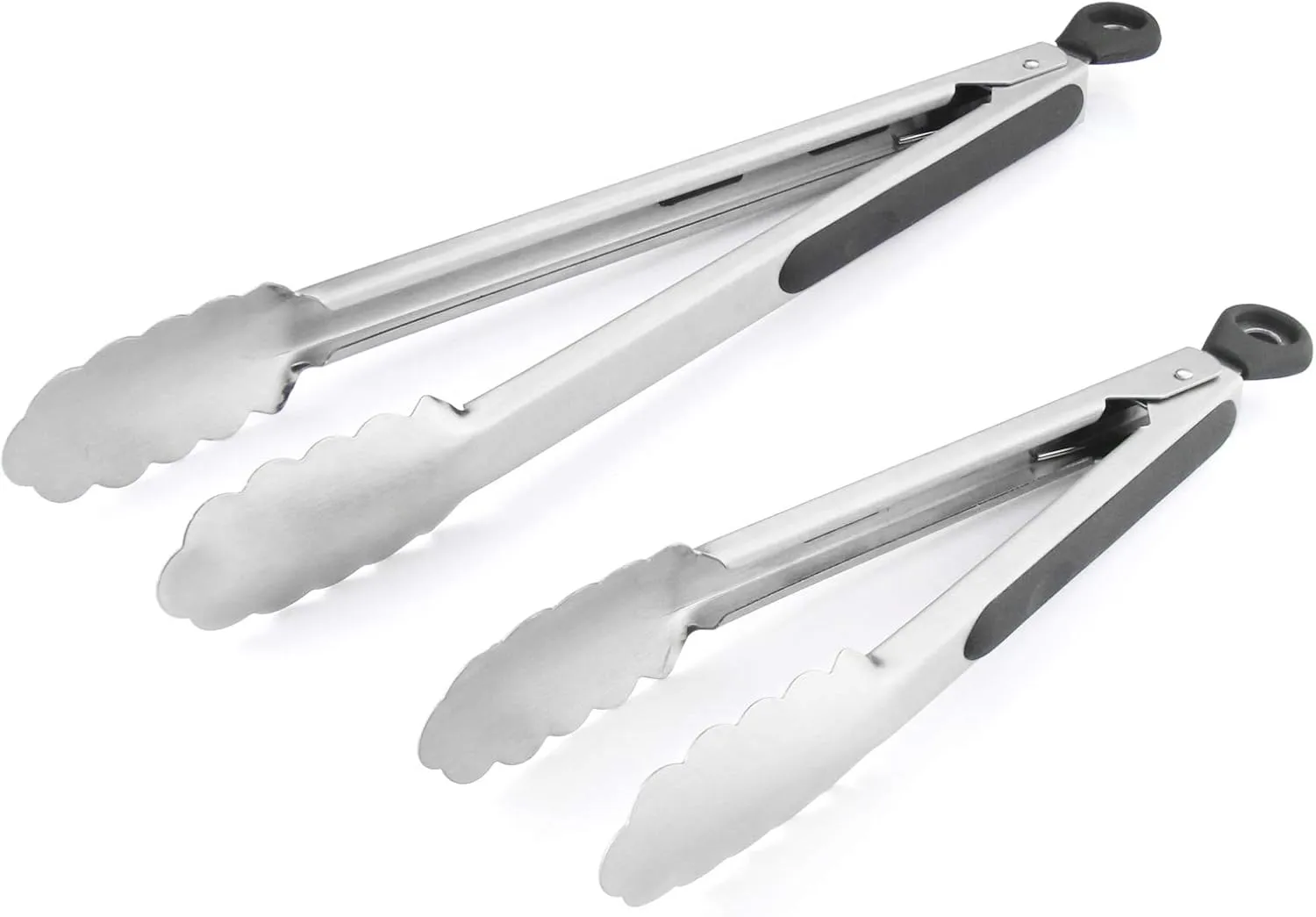
- Benefits:
- Superior Heat Resistance: Metal tongs, typically made from stainless steel or aluminum, can withstand extremely high temperatures without melting or warping. This makes them ideal for direct exposure to open flames and high-heat grilling.
- Durability: Metal tongs are robust and long-lasting, capable of handling heavy-duty tasks such as flipping large cuts of meat or moving hot coals.
- Firm Grip: The rigid structure of metal tongs provides a strong and secure grip, essential for handling heavy or unwieldy items on the grill.
- Drawbacks:
- Heat Conductivity: Metal tongs can conduct heat, making the handles hot to touch if left on the grill for too long. This can pose a risk of burns if not handled with care.
- Risk of Damage to Grill and Food: The hard edges of metal tongs can scratch non-stick grill grates and may damage delicate foods, such as fish or vegetables.
Plastic Tongs
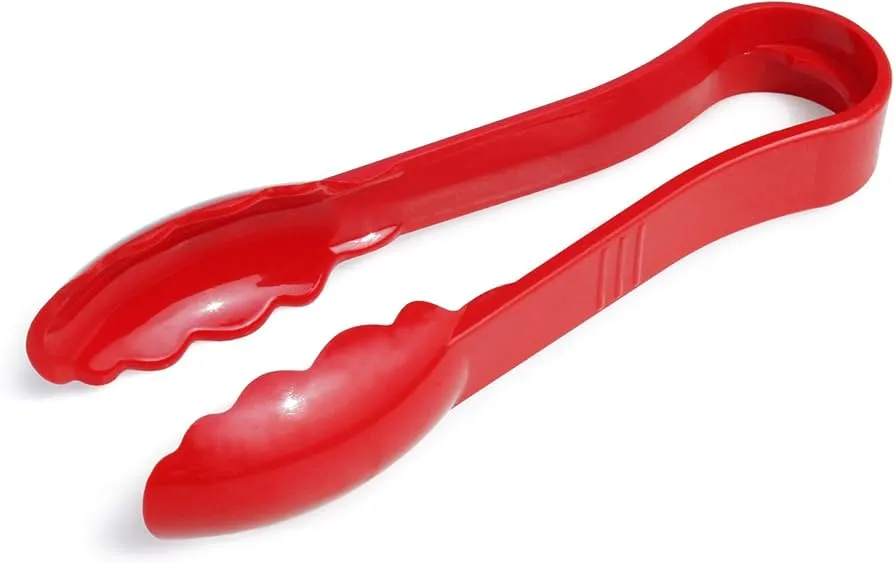
- Risks and Limitations:
- Low Heat Resistance: Most plastic tongs are not designed to withstand high temperatures and can melt or deform when exposed to the intense heat of a grill. This makes them unsuitable for direct grilling tasks.
- Chemical Leaching: At high temperatures, certain plastics can release harmful chemicals into food, posing health risks.
- Limited Durability: Plastic tongs are generally less durable than metal or silicone options. They can crack or break under the pressure of handling heavy or dense foods.
Rubber Tongs
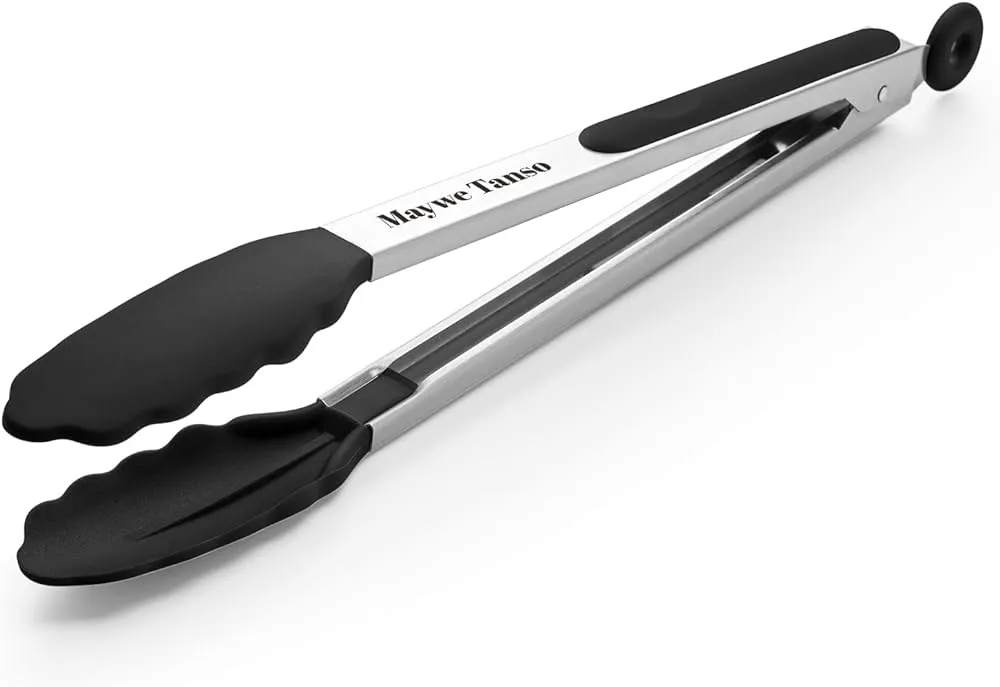
- Benefits:
- Heat Resistance: Rubber tongs are typically designed to withstand moderate heat, making them suitable for low to medium-heat grilling tasks.
- Grip: Rubber tongs offer a soft, non-slip grip, making them comfortable to use and easy to handle even when dealing with slippery foods.
- Flexibility: The flexible nature of rubber can be gentle on delicate foods, reducing the risk of tearing or damaging items like fish fillets or vegetables.
- Drawbacks:
- Limited Heat Tolerance: Rubber tongs are not suitable for high-heat grilling as they can melt or degrade when exposed to intense heat.
- Durability: They may not be as durable as metal or silicone tongs and can wear out over time with regular use.
While metal tongs excel in heat resistance and durability, they can become hot and potentially damage delicate items. Plastic tongs, on the other hand, are unsuitable for high-heat grilling due to their low melting point and potential chemical leaching. Rubber tongs offer a comfortable grip and flexibility but are limited in their heat tolerance and durability.
Key Features of High-Quality Silicone Tongs
When choosing silicone tongs for grilling, consider these key features to ensure they can handle high heat and provide the best functionality and safety:
Design and Ergonomics
- Comfortable Grip: High-quality silicone tongs should have ergonomically designed handles that fit comfortably in your hand, ensuring better control and reducing hand fatigue during long grilling sessions.
- Non-Slip Handles: Look for tongs with non-slip grips, which can be especially helpful when handling greasy or wet foods.
- Length: Longer tongs (around 12 inches or more) keep your hands safely away from the heat, reducing the risk of burns and providing better leverage when handling larger food items.
- Locking Mechanism: A built-in locking mechanism allows you to close the tongs for compact storage, keeping them in a closed position when not in use.
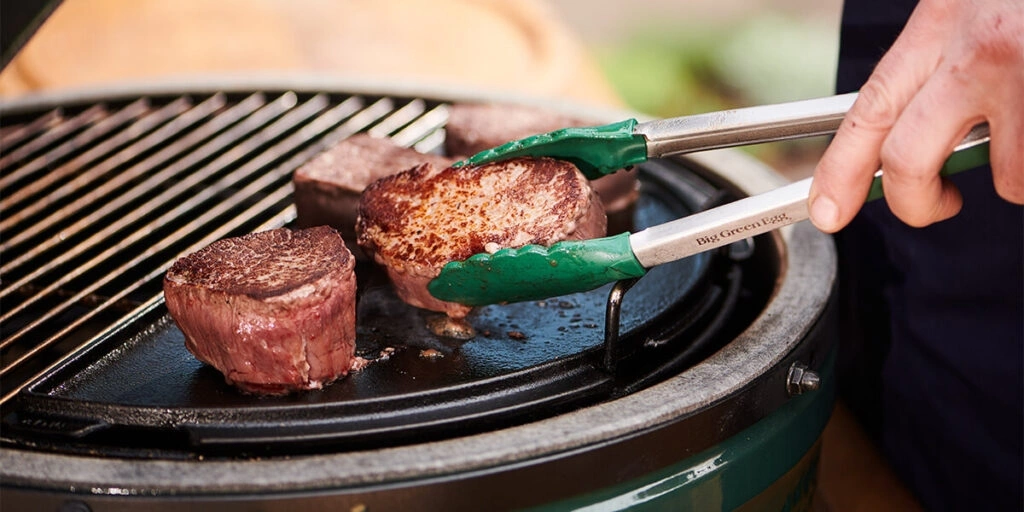
Safety Features
- Heat Resistance: Ensure the silicone is rated for temperatures up to at least 500°F (260°C), crucial for grilling.
- Food-Grade Silicone: High-quality tongs are made from food-grade silicone, which is non-toxic and free from harmful chemicals like BPA.
- Reinforced Core: Some silicone tongs have a metal core that provides added strength and durability, helping maintain the tongs’ shape and improving their ability to handle heavier foods.
- Wide, Flat Tips: Silicone tongs with wide, flat tips provide a secure grip on food, reducing the risk of slipping. This design is particularly useful for turning delicate items like fish or vegetables without tearing them.
- Heat-Resistant Handles: The handles should be designed to stay cool, even when the tongs are exposed to high heat.
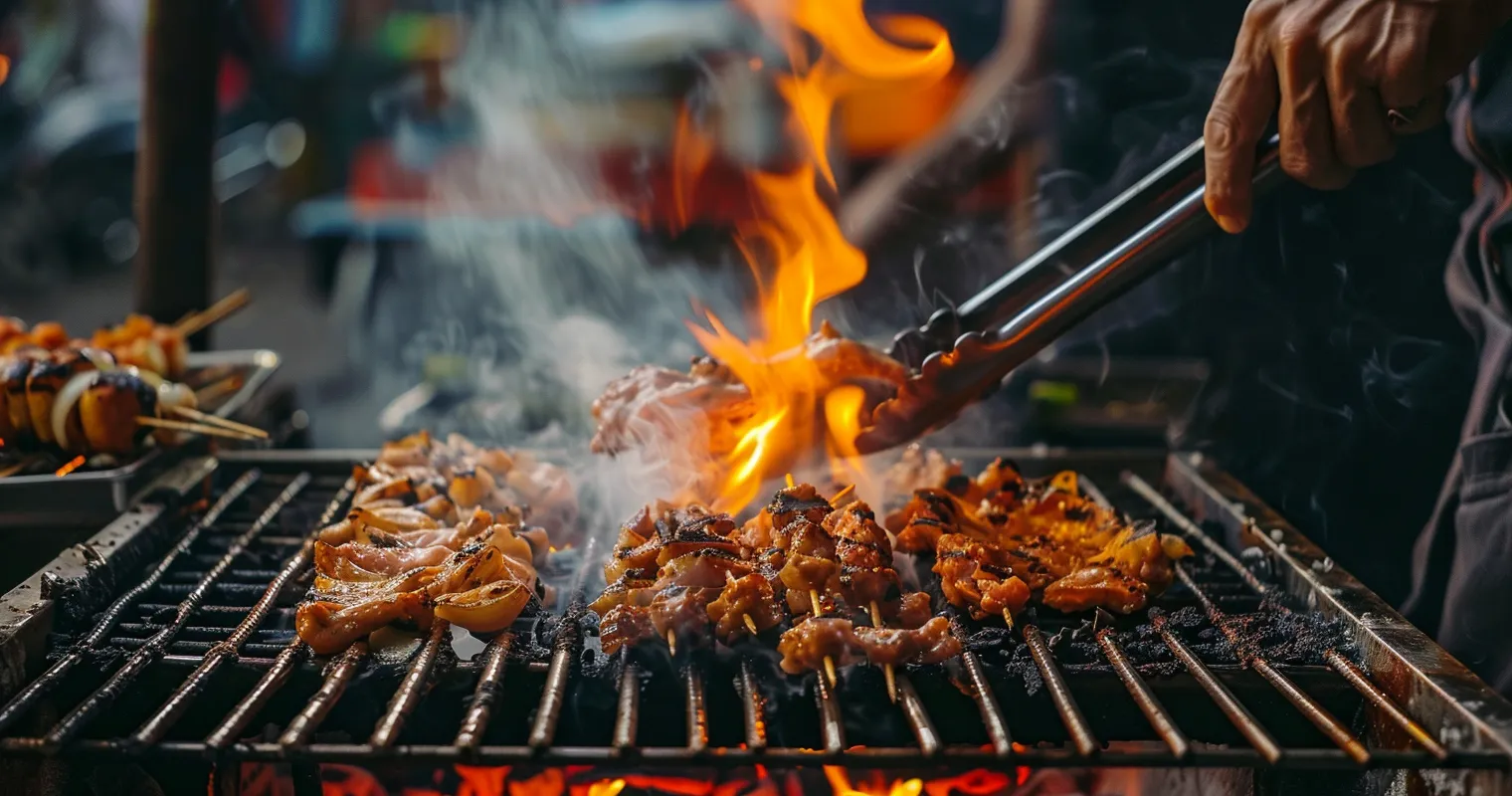
Practical Tests and Results
Understanding the practical performance of silicone tongs under real-world grilling conditions is crucial to determining their suitability. Here’s an overview of practical tests and results, focusing on temperature thresholds and their performance in various grilling scenarios:
Temperature Thresholds
- Direct Grill Surface Contact: Tongs were placed directly on a hot grill surface reaching temperatures around 450°F (232°C). The tongs maintained their integrity without any signs of melting or warping.
- Proximity to Open Flame: Tongs were used near an open flame, avoiding direct contact but operating in high ambient temperatures. The silicone tips remained stable, although it is recommended to avoid prolonged exposure to direct flames.
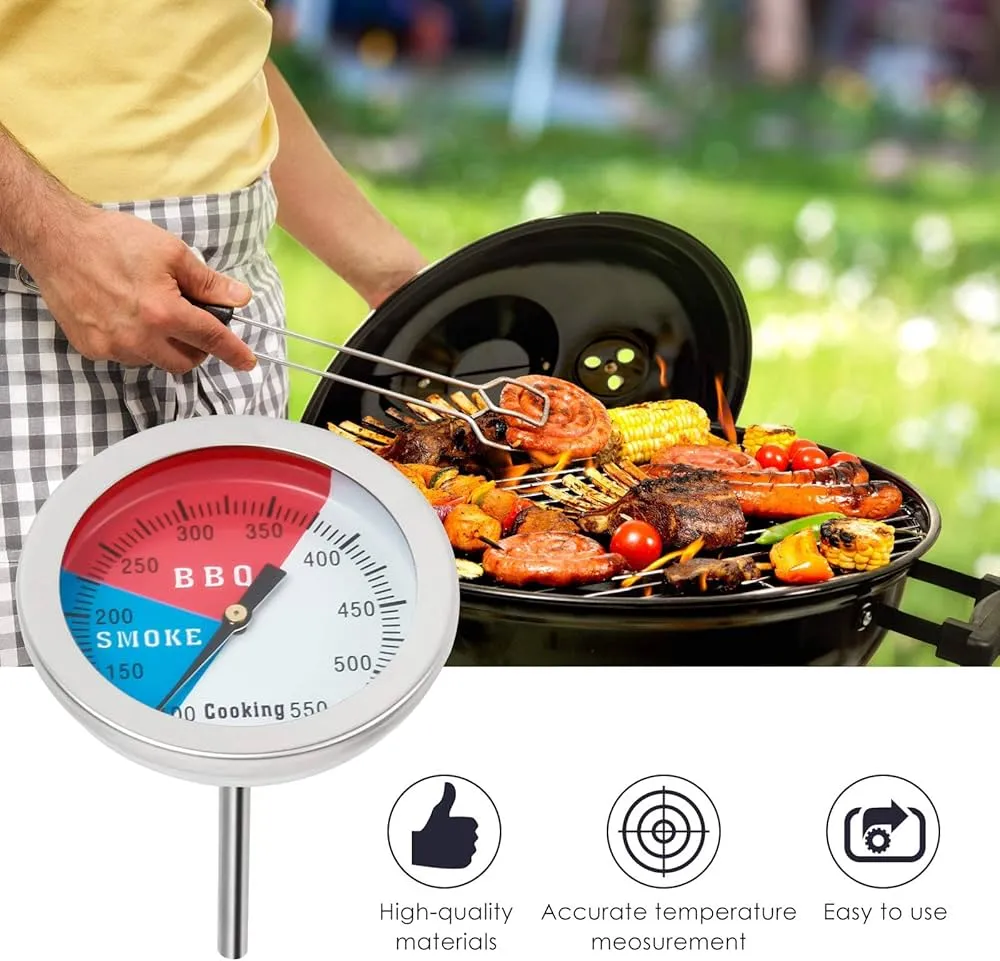
These tests confirm that high-quality silicone tongs can withstand the typical temperatures encountered during grilling, provided they are not exposed directly to open flames for extended periods.
Performance in Grilling Scenarios
- Flipping Burgers and Steaks: Silicone tongs were used to flip burgers and steaks on a hot grill. The wide, flat tips provided a secure grip, and the non-stick surface ensured the meat did not adhere to the tongs.
- Handling Vegetables: When grilling vegetables like asparagus and bell peppers, the silicone tongs excelled in maintaining a gentle yet firm hold. The heat resistance was evident, as the tongs easily managed the heat without transferring it to the handles.
- Turning Hot Dogs and Sausages: For lighter items such as hot dogs and sausages, the silicone tongs performed admirably. The non-slip grip and ergonomic design allowed for precise control, ensuring the food did not slip or fall through the grill grates.

User Tips and Maintenance
Proper use and maintenance of silicone tongs can significantly extend their lifespan and ensure they remain safe and effective for grilling. Here are some guidelines:
Cleaning and Care
- Hand Wash Preferred: While many silicone tongs are dishwasher safe, hand washing is often recommended to preserve their integrity.
- Avoid Abrasive Cleaners: Use mild dish soap and a non-abrasive sponge to clean the tongs, avoiding harsh chemicals and abrasive tools that can damage the silicone surface.
- Dry Thoroughly: After washing, make sure the tongs are thoroughly dried before storing them to prevent moisture buildup, which can lead to mold or mildew.
Storing Silicone Tongs
- Locking Mechanism: Utilize the built-in locking mechanism (if available) to keep the tongs closed and compact for storage.
- Avoid Direct Sunlight: Store silicone tongs in a cool, dry place away from direct sunlight, which can cause the silicone to degrade over time.
- Hanging Storage: If possible, hang the tongs to prevent them from getting tangled or damaged in a drawer.
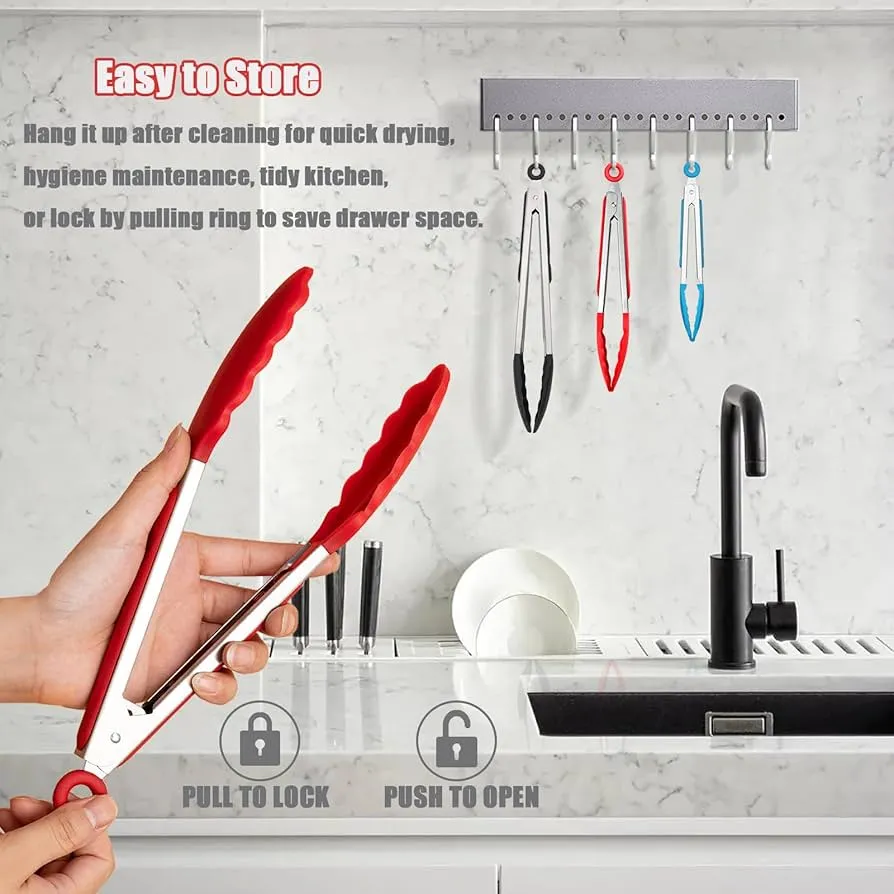
Additional Usage Tips
- Avoid Direct Flame Contact: While silicone tongs can handle high heat, avoid placing them directly over open flames to prevent damage.
- Use for Specific Tasks: Reserve silicone tongs for tasks where their benefits are most needed, such as handling delicate foods or using non-stick cookware.
- Check for Wear: Regularly inspect your silicone tongs for signs of wear, such as cracking or discoloration, and replace them if necessary.

Conclusion
Silicone tongs can be a valuable addition to your grilling toolkit, offering versatility, heat resistance, and a gentle grip for delicate foods. While they are not as robust as metal tongs for heavy-duty grilling tasks, their unique features make them ideal for specific uses, particularly when you need to avoid scratching non-stick surfaces or want to handle delicate items with care.
By following the guidelines and tips provided in this article, you can ensure that your silicone tongs perform at their best and last for many grilling sessions to come.
Disclosure: Our blog contains affiliate links to products. We may receive a commission for purchases made through these links. However, this does not impact our reviews and comparisons. We try our best to keep things fair and balanced, in order to help you make the best choice for you.

